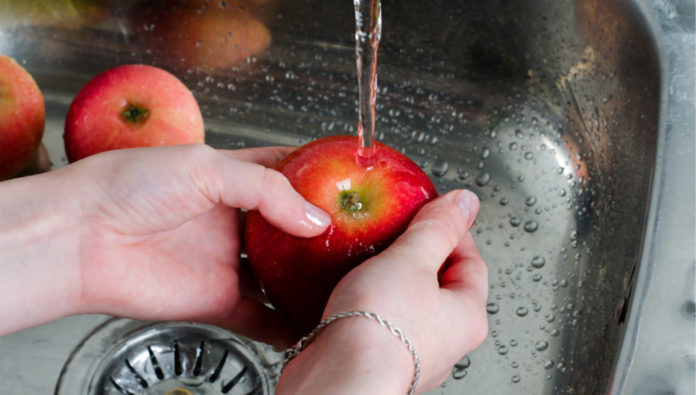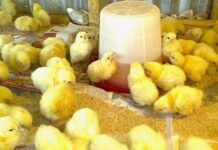Almost half of the people asked in a survey have said it was safe to eat fruits and vegetables washed with soap or diluted bleach.
University College London and The Health Sciences Academy found 43 percent of participants wrongly believe the practice was safe, supposedly done to remove potential Coronavirus viral particles.
The study saw Professor Michael Reiss and doctoral researcher Alex Ruani investigate misinformation around COVID-19 food and eating practices.
It was launched shortly after lockdowns began and had 25 statements with 3,781 participants answering whether they viewed them as ‘correct’, ‘incorrect’, or ‘not sure’. Two-thirds of those surveyed came from the United Kingdom, the U.S., India, and Ireland.
Not safe to wash produce with soap or to gargle bleach.
Ruani said: “It’s not safe to wash your fresh produce with soap or diluted bleach. But, quite worryingly, we found that a large number of people might be engaging in this harmful food practice despite food authorities’ warnings.”
A total of 3.3 percent of participants believed “you can protect yourself from the novel coronavirus by gargling bleach”, with 7.5 percent unsure.
More than 90 percent believe that to reduce the risk of COVID-19 infection, people should try to avoid direct contact with the person delivering groceries or packages and wash their hands thoroughly after bringing in such deliveries.
Researchers also found that 21 percent believed “drinking water flushes all COVID-19 viral particles into the esophagus and then the stomach, where they will be disintegrated by gastric acid”, with 22 percent unsure.
Public health messages.
Professor Reiss said most people understand the importance of social distancing in preventing the spread of COVID-19.
“However, there are important misunderstandings about the implications of food and eating practices. Governments can help allay fears and reduce COVID-19 transmission by promoting clear public health messages about food and eating.”
The European Food Safety Authority (EFSA) has said for months there is no evidence that food is a likely source or route of transmission of the virus. The European Centre for Disease Prevention and Control (ECDC) states it is spreading from person to person mainly via respiratory droplets that people sneeze, cough, or exhale.
The Federal Institute for Risk Assessment (BfR) has been regularly surveying how the population in Germany sees the outbreak of coronavirus and what people are concerned about.
In the latest set of results, the probability of being infected with coronavirus via food was judged as being high or very high by 11 percent of 510 participants and medium by 12 percent. More young people aged 14 to 39 thought there was a high risk than 40 to 59 or those over 60 years old.
Meanwhile, another survey by Leatherhead Food Research has found consumer behavior and eating habits may be permanently affected due to the pandemic.
Most U.K. consumers said they had changed how they shop for food following the outbreak, including shopping less frequently but buying more, planning meals to shop for the week ahead, and buying more groceries online.
The survey of 1,706 people found that attitudes to food hygiene have changed for 78 percent of respondents. Two-thirds say they are now more careful about washing hands and cleaning surfaces after handling and unpacking food from shops, 37 percent believe that everyone should use hand sanitizer when entering a shop where food is sold, and 40 percent of people are more careful about washing unpackaged fruit and vegetables than before.
source; foodsafetynews.com








